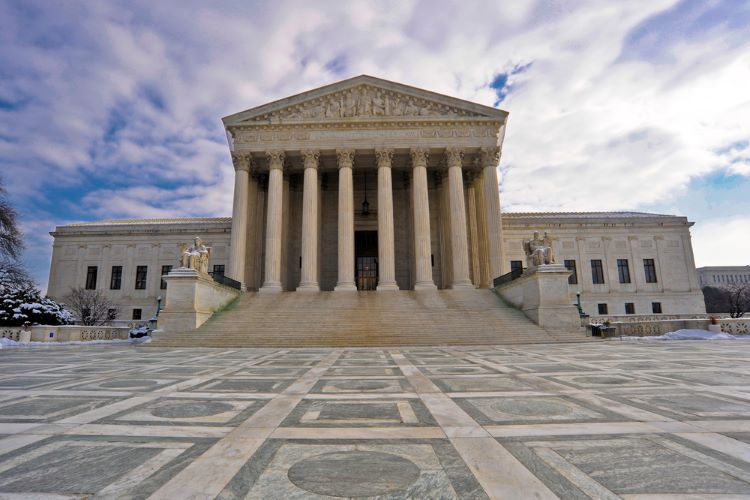Supreme Court is more conservative than most Americans, surveys show

Image from Shutterstock.
The U.S. Supreme Court’s decisions have recently become more conservative than the policy preferences of most Americans, according to a series of three surveys taken in 2010, 2020 and 2021.
The high court’s decisions largely mirrored the positions of the average American in 2010 and 2020, the surveys indicated. But that changed when the court shifted further to the right with the replacement of the late Justice Ruth Bader Ginsburg with Justice Amy Coney Barrett, according to an article on the survey findings published in Proceedings of the National Academy of Sciences journal.
Many members of the public underestimate the Supreme Court’s conservative leanings, according to the surveys, which asked the public for their opinions about policy issues before the court. Democrats are particularly likely to view the court as more liberal than it actually is.
Law.com, Courthouse News Service and Law360 have coverage, while How Appealing links to the study.
The study noted that the median justice in the ideological middle of the court has shifted from Justice Anthony Kennedy in 2010 to Chief Justice John Roberts in 2020 to Justice Brett Kavanaugh in 2021.
“We estimate that after the median shifted from John Roberts to Brett Kavanaugh in late 2020, the court is now near the typical Republican and to the ideological right of roughly three-quarters of all Americans,” the study said.
The number of respondents varied from 1,500 to 2,258 people per survey. The study compared respondents’ preferences on policy issues with the court’s eventual rulings. The researchers chose 10 to 12 of the “most important, publicly salient” court cases by consulting with experts or reading commentary.
In June 2020, for example, the Supreme Court’s docket included Bostock v. Clayton County, which considered whether employers could fire workers based on sexual orientation. Eighty-three percent of the respondents said this kind of discrimination should be illegal, which was the position eventually taken by the court.
The 2021 survey also asked about support for court reform. Just less than one-third of the respondents supported expanding the number of justices on the Supreme Court, while a slight majority supported term limits for justices. The more that the respondents viewed the court as farther to the right than their own views, the more that they supported the proposed changes.
One of the study authors is Maya Sen, a public policy professor at Harvard University. She told Courthouse News Service that support for court reform might increase if the public was more aware of the court’s conservative tilt.
“I think 2021 was a term that went under the radar a little bit; I don’t think that’s going to happen now, especially if Roe is overturned,” Sen told Courthouse News Service. “I don’t think that’s going to happen if they overturn the New York gun safety regulations.”
The other authors of the study are Stephen Jessee of the University of Texas at Austin and Neil Malhotra of the Stanford Graduate School of Business.



